Ensuring your furry friend maintains a healthy weight in canine care is paramount to their well-being. Some dogs, whether due to breed characteristics, age, or health issues, may struggle to maintain a proper weight. Finding the best dog food for weight gain becomes crucial in such cases.
This comprehensive guide sheds light on the factors influencing a dog’s weight, the importance of a balanced diet, and the top dog food choices to support healthy weight gain. Whether you’re a concerned pet parent or a professional in the field, understanding the nutritional needs of dogs is critical to promoting their optimal health.

In pet care, ensuring your furry companion maintains a healthy weight is paramount to their well-being. Choosing the right dog food becomes crucial if your dog is underweight or struggling to gain weight. This comprehensive guide will delve into the factors influencing canine weight, signs of undernourishment, and, most importantly, the best dog food options to help healthy weight gain.
When it comes to ensuring the health and well-being of our furry friends, providing the proper nutrition is paramount. While some dogs may struggle with maintaining a healthy weight, specialized dog foods are designed to address this issue.
In this comprehensive guide, we will delve into the world of canine nutrition and explore the best dog food options for weight gain. Whether you have a picky eater, a senior dog, or a pup with a fast metabolism, we’ve covered you with detailed reviews and a helpful buying guide.
What causes weight loss in dogs?
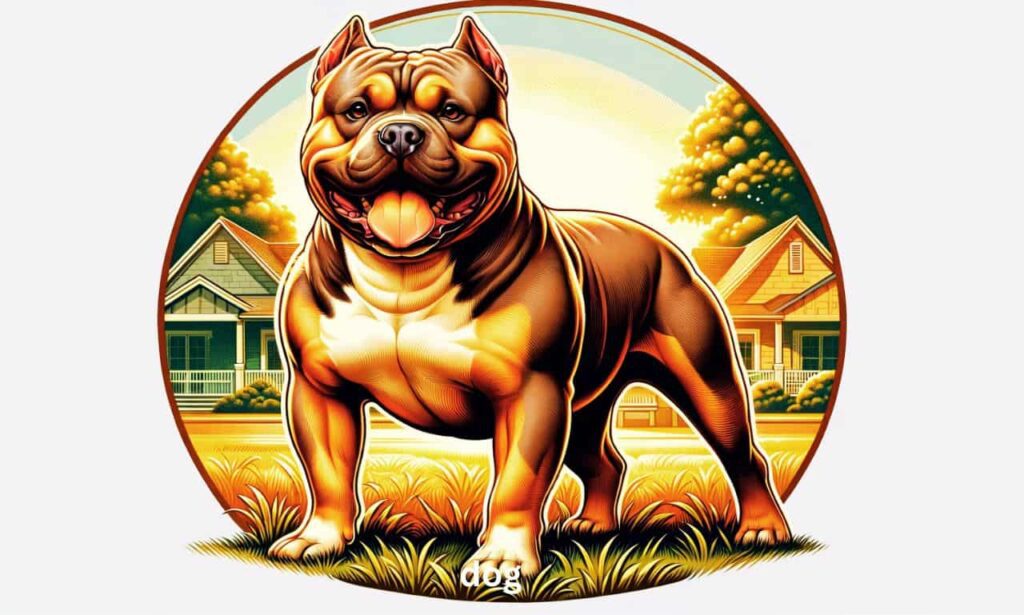
Weight loss in dogs could be significant when it’s greater than 10 percent of the average weight of the dog’s body. For example, an adult Labrador Retriever may need a weight loss of seven to eight pounds before the veterinarian becomes concerned. In contrast, losing as little as one pound can be dangerous for a Yorkshire Terrier.
The best way to explain it is when the amount of calories a dog consumes is below the calories consumed daily. This is why active breeds and those employed need high-calorie diets, as do puppies and female dogs who are breastfeeding. The following factors cause a weight loss that isn’t healthy:
Poor or insufficient diet
- The intake of food isn’t as high because of dental problems
- Inadequate digestion, deficiency or absorption
- Cold temperatures for an extended time
- Diarrhea or vomiting
- The stress level increases the risk of anorexia.
It only takes a 10 percent body mass loss to qualify as a medical issue. Any change in how your dog eats or its health situation should be alarming and be discussed with your veterinarian. Your veterinarian can determine the root cause of your dog’s weight loss and the most appropriate treatment.
Tips for Helping an Underweight Dog Gain Weight
If your veterinarian can determine the root of your dog’s weight loss, they can tell you the most effective method to address the issue. Alongside medical treatments, certain dogs can enjoy a diet rich in calories to improve their weight and other lifestyle modifications.
Below are some more ideas to help your dog gain mass:
Increase the nutritional value of your dog’s diet to increase digestion and the absorption of nutrients.
You can feed your dogs small meals three or four times throughout the day instead of feeding them large meals twice daily.
Make sure your dog is exercising as well as you can. This will help build muscles and strength and also boost his appetite.
Change to a wet formula or topping for meals for the pet to look more attractive. Diet is more appealing.
Give your pet small portions of high-calorie food like stewed or roasted meat (or any other meat) and cooked eggs throughout the day.
Helping your dog gain weight may take more than increasing the food you give your dog. Your dog’s diet should be nutrient-balanced and designed to aid him in developing lean muscles, not fat.
Check out our top picks for the most nutritious dog food that aids in their weight growth.
Meeting Calorie Needs
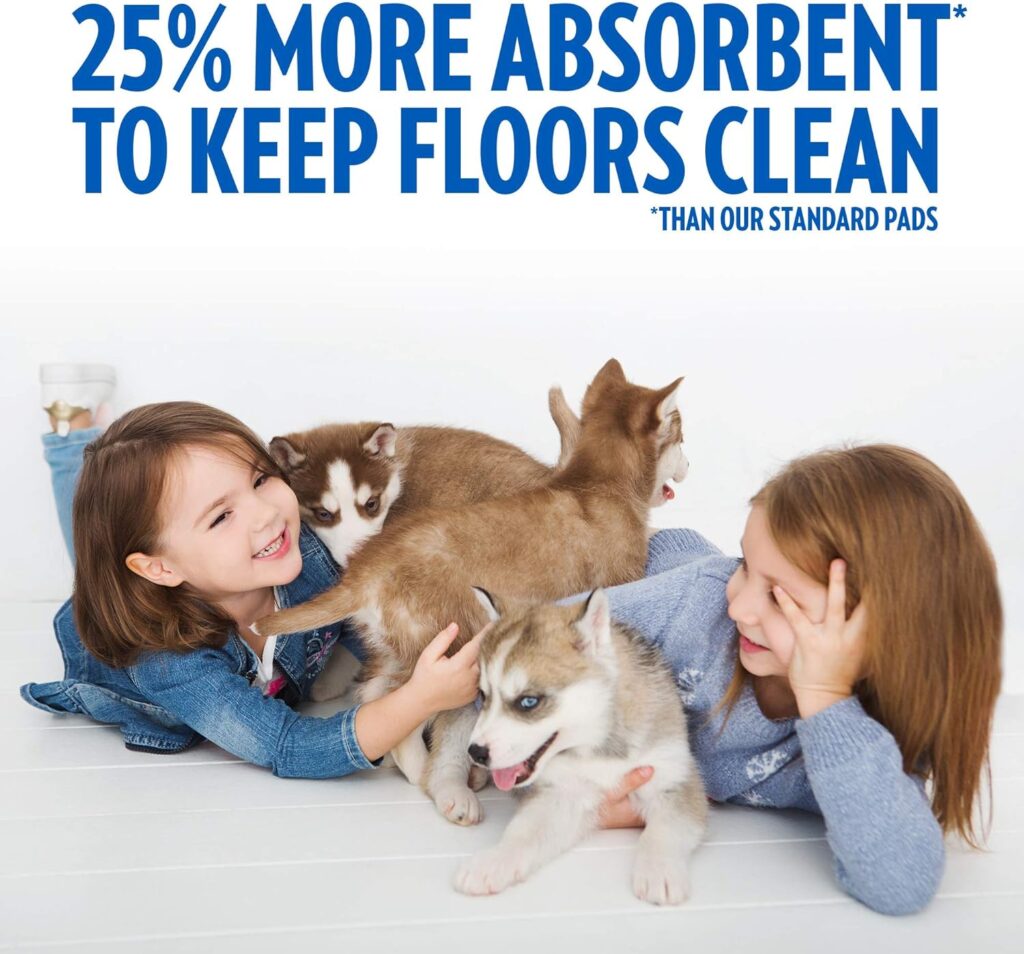
Diets for high-energy dogs should be calorie-dense to satisfy the higher demand for energy from active dogs, those in a stage of reproduction and growth, or for helping older dogs gain weight. Calories are derived from many ingredients but can be classified into three categories: fats, proteins, and carbohydrates.
Protein is particularly essential for dogs who have high energy needs. Whether your pet is active and young or a senior dog struggling to keep weight on and maintain a healthy weight, high-quality, digestible proteins are crucial in helping keep lean body mass or the mass of muscles.
Digestible and high-quality proteins aid in developing cells, muscle repair, and energy levels. Proteins from animals, like muscles, meat, and eggs, are a great source of digestible protein for dogs.
Fat is the most significant source of calories in diets and is essential for increasing the energy content of the dog’s diet. Find diets that contain moderate to high amounts of healthy fats, such as omega-3 (found in fish oils), omega-6 (found in plant oils), and fatty acids.
These fats provide the energy needed and help with the health of your coat and skin, cognitive function, and joint health.
Although fats are fantastic energy sources, excessive amounts may increase the chance that dogs will suffer from pancreatitis. Due to this, a recommendation from the National Research Council (NRC) provides a fat requirement of 82.5g/1,000 calories, meaning that not more than 74% of an animal’s calories must be from fat. Although this is a general rule, each dog is unique, so you should alter your diet if needed and consult your vet for any questions.
Carbohydrates serve as an abundant source of energy. Incorporating carbohydrates from grains, vegetables, and fruits can provide energy and nutrients, including antioxidants, vitamins, and minerals. Carbohydrates can also be the best source of fiber, which helps improve the quality of stool and support the health of your gut microbiome. visit my other page
Understanding Canine Weight Management
- Factors Influencing Canine Weight:
- Breed-specific characteristics
- Age-related changes
- Health conditions affecting weight
- Signs of underweight dogs:
- Visible ribs or spine
- Lack of muscle definition
- Low energy levels
- Dull coat and skin issues
- Importance of Healthy Weight in Dogs:
- Impact on health and lifespan
- Connection to joint health
- Relationship to immunity and disease prevention
- Role of Nutrition in Weight Management:
- Essential nutrients for dogs
- The significance of balanced diets
- Customizing nutrition based on individual needs
- Choosing the Best Dog Food for Weight Gain
- Protein-rich dog foods:
- The importance of high-quality protein
- Sources of lean protein
- Recommended protein content for weight gain
- Healthy Fats for Weight Gain:
- The role of fats in a dog’s diet
- Sources of healthy fats
- Balancing omega-3 and omega-6 fatty acids
- Carbohydrates and Fiber:
- The right balance of carbohydrates
- Fiber’s role in digestion and weight management
- Choosing complex carbohydrates
- Vitamins and Minerals:
- Key vitamins for weight gain
- Essential minerals for health
- Incorporating fruits and vegetables into the diet
- Avoiding Fillers and Additives:
- The impact of fillers on canine nutrition
- Identifying common additives and preservatives
- Reading and understanding dog food labels
- Top Dog Food Choices for Weight Gain
- High-Calorie Dog Foods:
- An overview of calorie-dense options
- Recommended brands and products
- Homemade Dog Food Recipes for Weight Gain:
- Crafting a balanced homemade diet
- Recipe ideas with proper nutritional content
- Specialized Weight Gain Formulas:
- Examining commercial dog foods designed for weight gain
- Reviews of top-rated weight-gain formulas
- Supplements for weight gain:
- The role of supplements in canine nutrition
- Recommended supplements for weight gain
- Tips for Implementing a Weight Gain Diet
- Consulting with a Veterinarian:
- The importance of professional advice
- Customizing a plan based on individual needs
- Gradual Diet Transitions:
- Avoiding digestive issues during the transition
- introducing new foods
- Monitoring and Adjusting:
- Regular weight checks
- Adjusting the diet based on progress
The dog’s food for weight gain List of one dog food
OUT! Heavy Duty XXL Dog Pads: Absorbent Pet Training and Puppy Pads, 26 x 30 in., 30 Count,White
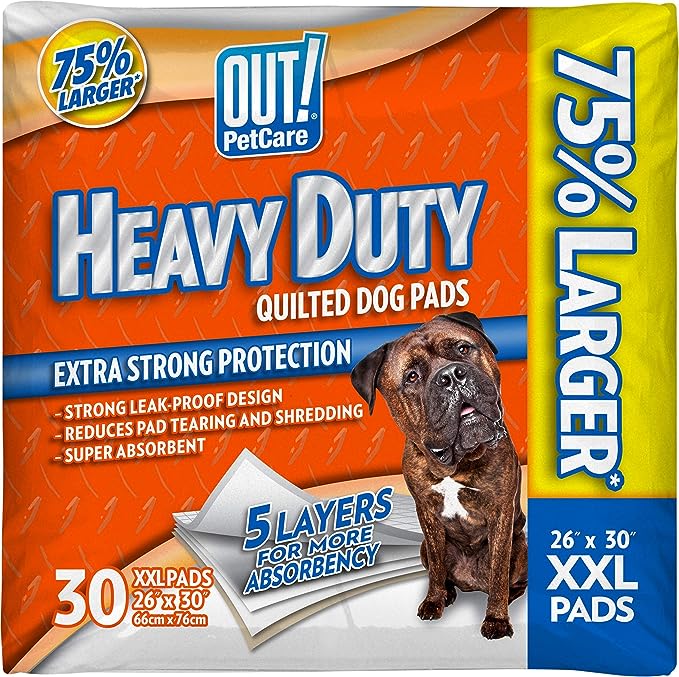
Pros
I was skeptical about it not leaking, but my pup only uses it during our sleeping hours, so I tried it. I’ve bought much more expensive ones, but they did leak through. I’m very happy with these and will definitely continue to order them. Caution: They aren’t very thick, which may not work for large dogs. Perfect for my Yorkiepoo, however.
Cons
I bought these because the description stated that they are “heavy-duty and extra large for my puppy’s house training. But they are far from being heavy duty by a long shot!!! My puppy pees even just a little, and it comes through the pads!!! The only good thing about them is that they are larger than many others. Also, they do not control order.
Sadly, I will not order them again! Even as big as they are, I have to use multiple pads to keep my floor somewhat dry! A big waste of my money
FAQ
What’s the best dog food for weight gain?
Selecting the right dog food for weight gain involves choosing a nutrient-dense formula with a higher protein and fat content. Look for options with real meat as the primary ingredient, balanced with essential vitamins and minerals. Consult your veterinarian to determine a personalized diet plan based on your dog’s needs.
What’s the best dog food for weight gain?
Selecting the right dog food for weight gain involves choosing a nutrient-dense formula with a higher protein and fat content. Look for options with real meat as the primary ingredient, balanced with essential vitamins and minerals. Consult your veterinarian to determine a personalized diet plan based on your dog’s needs.
Weight gain dog food?
“Specially formulated to meet the nutritional needs of your canine companion, our weight gain dog food is crafted with high-quality ingredients to support healthy muscle development and overall well-being. Packed with essential nutrients, it promotes gradual weight gain for underweight dogs, ensuring they thrive and maintain optimal vitality.”
What’s the best weight gainer for dogs?
Choosing the right weight gainer for dogs depends on their needs and health conditions. Consult your veterinarian for personalized recommendations. Some popular options include high-calorie dog food, supplements like Nutri-Cal, or homemade recipes with protein-rich ingredients. Prioritize balanced nutrition to support your dog’s overall well-being.
What’s the best weight-gaining dog food?
Selecting the ideal weight-gaining dog food involves considering your dog’s breed, age, and health. Consult your veterinarian for personalized recommendations. Quality options include Hill’s Science Diet Adult Large Breed, Royal Canin Labrador Retriever, and Blue Buffalo Life Protection Formula. Ensure a gradual transition for digestive health.
What’s the best dog food for gaining weight?
Select nutrient-rich dog food with higher protein and fat content to aid weight gain. Opt for formulas with real meat as the main ingredient and avoid fillers. Consult your vet to determine specific dietary needs and potential health concerns. Gradually transition your dog to the new food to prevent digestive issues.
Conclusion
In conclusion, ensuring your dog reaches and maintains a healthy weight involves understanding their unique needs and providing them with a balanced diet. You can support your canine companion in achieving optimal health and well-being by incorporating the right combination of proteins, fats, carbohydrates, vitamins, and minerals and choosing the best dog food options for weight gain. Always consult your veterinarian to tailor a plan that meets your dog’s requirements and check their progress for a happy and healthy life together.
Prioritizing your dog’s nutritional needs is critical to ensuring a healthy weight-gain journey. By understanding the factors influencing weight,

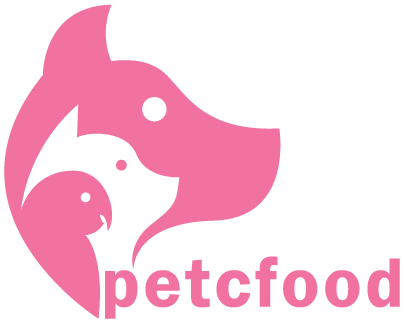
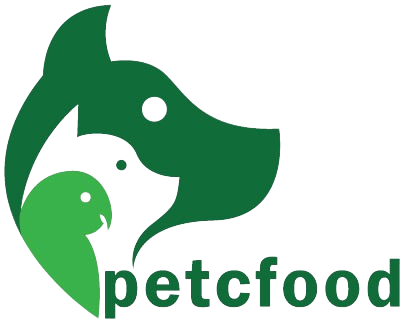












Leave a Review